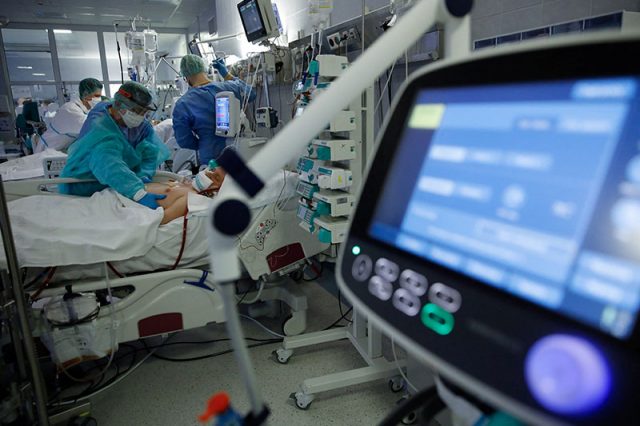
The following is a summary of some recent studies on COVID-19. They include research that warrants further study to corroborate the findings and that has yet to be certified by peer review.
Long COVID ‘brain fog’ shares features with ‘chemo brain’
The “brain fog” reported by some people after COVID-19 shows striking similarities to the condition known as “chemo brain” – the mental cloudiness some people experience during and after cancer treatment, according to new research.
People who had COVID-19 “frequently experience lingering neurological symptoms, including impairment in attention, concentration, speed of information processing and memory,” similar to patients with cancer therapy-related cognitive impairment that is known to involve inflammation of the brain, the researchers explained in a report posted on Monday on bioRxiv ahead of peer review.
In the brains of patients who died of COVID-19, the researchers found evidence of inflammation along with high levels of inflammatory proteins, one of which, CCL11, is linked with impairments in nervous system health and cognitive function.
Among 63 patients with so-called long COVID, the researchers found high CCL11 levels in the 48 with lingering cognitive symptoms, but not in the 15 without cognitive issues.
They speculate that treatments showing promise for cancer therapy-related cognitive impairment might be helpful for COVID-19 patients with similar problems. But they would need to be tested specifically for long COVID.
Experimental clip-on device finds virus particles in air
An small experimental device designed to be attached to clothing may be able to tell whether the wearer has been exposed to SARS-CoV-2 particles in the air, researchers said.
The device, called the Fresh Air Clip, continually collects airborne aerosols, including droplets carrying the virus, on a silicone surface, according to a report published on Tuesday in Environmental Science & Technology Letters.
After testing the device in laboratory experiments, the researchers distributed them to 62 volunteers who each wore the monitors for five days. PCR analysis detected the coronavirus in five of the clips, four of which had been worn by restaurant servers and one by a staff person at a homeless shelter.
More research is needed to confirm its effectiveness before the device can be sold commercially, the researchers noted. But it could prove useful in “real-world high-risk settings,” helping to improve early detection of potential cases and to identify indoor areas that pose high exposure risks.
Researchers plan for reusing hospital-grade masks
A type of mask used by healthcare providers to protect themselves from the coronavirus can be reprocessed to augment supplies, researchers believe.
Unlike cloth and surgical masks, the N95 respirators are designed to achieve a very snug facial fit, with edges that form a tight seal around the nose and mouth. Early in the pandemic, shortages of N95 masks forced personnel to re-use them or to use masks that provided less protection.
In a paper in the American Journal of Infection Control, researchers report that the masks can be safely re-sterilized with a standard decontamination approach involving vaporized hydrogen peroxide and still maintain their effectiveness for up to 25 cycles of re-use.
Successful, large-scale implementation of N95 respirator reprocessing would require significant coordination and logistical support to ensure disinfection and safety, they said.
It would be wise to plan now for “ways to scale and translate this capability to smaller hospitals and resource-limited healthcare settings that could benefit just as much – perhaps more – from this type of personal protective equipment reprocessing in future disaster scenarios,” coauthor Dr. Christina Yen of Beth Israel Deaconess Medical Center in Boston, said in a press statement.
—Reporting by Nancy Lapid; Editing by Bill Berkrot









